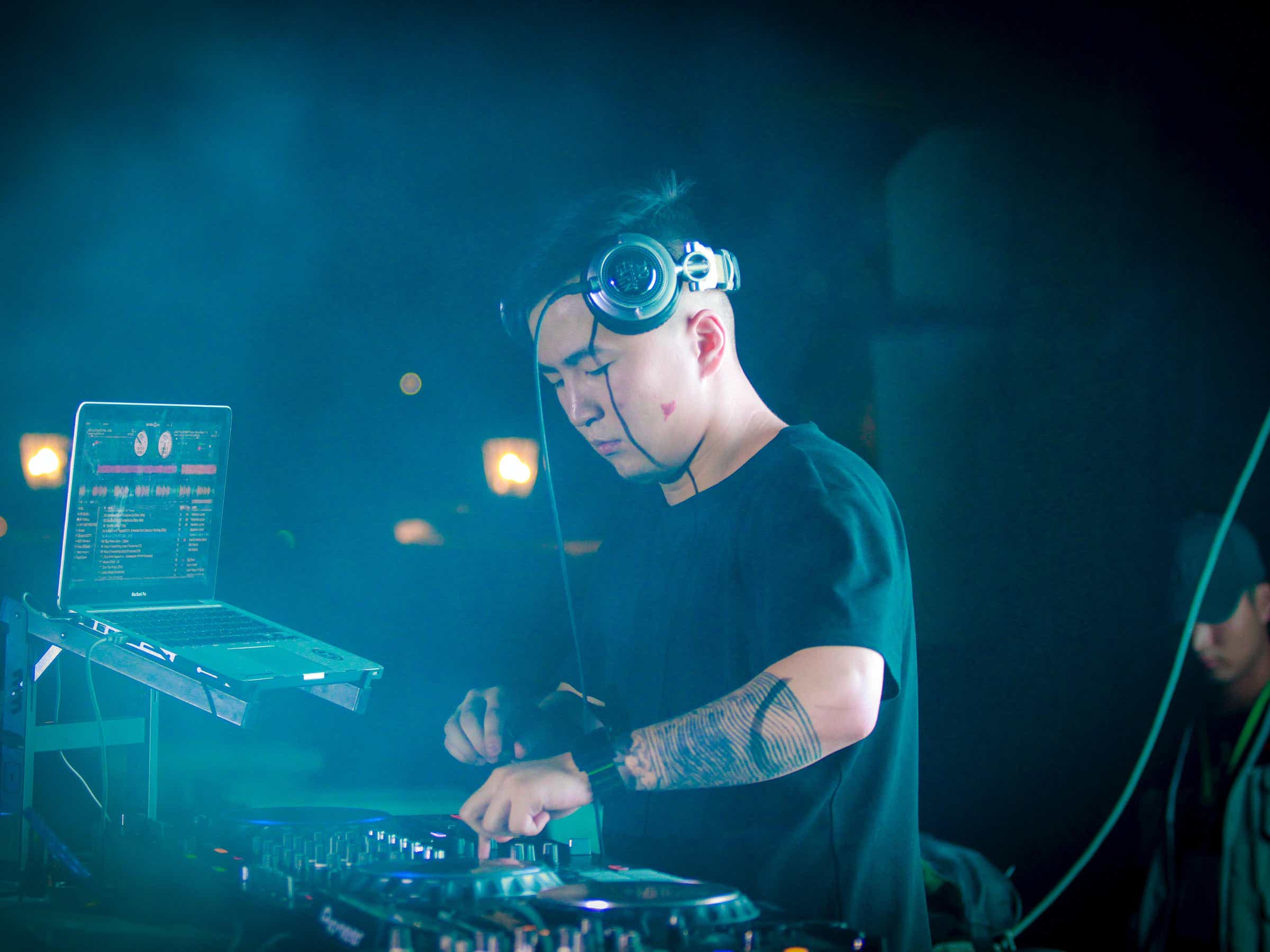
Are you a fan of music? Have you ever wondered about the talented individuals behind the seamless mix of beats and tunes at your favorite party or club? Well, look no further because in this article, we are going to dive into the intriguing world of DJs (Disc Jockeys). DJs are the unsung heroes of the music industry, effortlessly blending tracks and creating an electrifying atmosphere for crowds to dance and have a great time. But there is so much more to DJs than meets the eye. From their unique skill set to their influence on popular culture, DJs hold a fascinating place in entertainment history. So, get ready to be amazed as we uncover 16 enigmatic facts about DJs that will leave you wanting to hit the dance floor!
Key Takeaways:
- DJs have a rich history, evolving from radio broadcasters to modern entertainers. They use technology, creativity, and showmanship to shape the music industry and captivate audiences.
- The future of DJ-ing is full of possibilities, with new technologies like virtual reality and AI-assisted mixing. DJs continue to redefine entertainment and amaze us with their innovation and artistry.
The Origins of DJ-ing
DJ-ing, also known as Disc Jockeying, has a rich and fascinating history. It originated in the early 1900s when radio broadcasters would play vinyl records over the airwaves to entertain listeners. This paved the way for the modern DJ, who emerged as a figure capable of blending different tracks seamlessly to create a unique musical experience.
The Rise of Turntablism
Turntablism, the art of manipulating sounds using turntables and vinyl records, gained popularity in the 1970s. DJs would use techniques like scratching, beat juggling, and backspinning to add a new dimension to their performances.
The DJ’s Best Friend: The Mixer
The mixer is a vital tool for DJs. It allows them to blend and transition between different tracks, adjust volume levels, and apply various audio effects. The invention of the mixer revolutionized the DJ industry and gave birth to new styles of mixing.
The Evolution of DJ Equipment
From turntables and vinyl records to digital controllers and software, DJ equipment has undergone a significant transformation. DJs now have access to a vast array of tools, allowing them to mix and manipulate music in ways unimaginable in the past.
Scratching: The Art of DJ-ing
Scratching is a unique technique where DJs create rhythmic patterns by moving vinyl records back and forth on a turntable. It adds a dynamic and expressive element to the music, making the DJ’s performance truly electrifying.
The DJ’s Role as an Entertainer
Many DJs not only mix music but also serve as entertainers, engaging the audience and creating a lively atmosphere. They possess the ability to read the crowd, select the right tracks, and keep the energy levels high throughout their set.
Genres Know No Boundaries
DJs have the versatility to play across various genres, from hip-hop and electronic dance music to rock and reggae. This flexibility allows them to cater to different tastes and preferences, making them a favorite at events and parties.
The Art of Beatmatching
Beatmatching is a critical skill for DJs. It involves seamlessly aligning the beats of two different tracks, creating a smooth transition between songs. This technique ensures a continuous flow of music, keeping the audience engaged and the dancefloor packed.
DJs and Remix Culture
DJs have contributed significantly to remix culture, whereby they take existing tracks and give them a fresh twist. Through remixing, DJs can put their own creative spin on popular songs, adding new elements and extending their longevity.
DJ-ing Goes Digital
The advent of digital technology has revolutionized DJ-ing. With the rise of software and controllers, DJs can now carry their entire music collection in a laptop or a compact device. This convenience allows for more spontaneity and creativity in their performances.
DJs as Music Discoverers
DJs often act as tastemakers and music discoverers. They have the ability to dig deep and uncover hidden gems, introducing the audience to new tracks and emerging artists. Their influence has a significant impact on the music industry.
The DJ and the Club Scene
The relationship between DJs and the club scene is one of mutual dependency. DJs rely on clubs to showcase their skills and gain popularity, while clubs depend on DJs to bring in an audience and create a vibrant atmosphere.
Residencies and DJ Culture
Many DJs establish residencies at clubs, where they perform regularly. These residencies allow DJs to build their brand, develop a dedicated fanbase, and create a unique musical identity.
The DJ’s Evolution into Producers
Many DJs have expanded their repertoire and ventured into production. They have honed their skills in music composition, arrangement, and sound design to create their original tracks and albums.
The Global Phenomenon of DJ Festivals
DJ festivals have become a global phenomenon, attracting thousands of music enthusiasts from all over the world. These events showcase some of the most renowned DJs, creating an immersive and unforgettable experience for attendees.
The Future of DJ-ing
The DJ industry continues to evolve rapidly, embracing new technologies and pushing the boundaries of creativity. With the rise of virtual reality, AI-assisted mixing, and immersive audio experiences, the future of DJ-ing holds endless possibilities.
Conclusion
As we delve into the enigmatic world of DJs (Disc Jockeys), we uncover a plethora of fascinating facts. From their humble beginnings to their iconic status in the music industry, DJs have left an indelible mark on popular culture. Whether it’s their unique ability to mix and blend different tracks or their captivating live performances, DJs continue to mesmerize audiences around the world.
From the birth of DJing in the 1940s to the modern-day digital revolution, DJs have evolved and adapted to the ever-changing landscape of music. Their mastery of turntables and mixers, coupled with their vast musical knowledge, allows them to create seamless transitions and unforgettable experiences for club-goers and music enthusiasts.
From their role as tastemakers and trendsetters to their ability to curate unforgettable moments on the dancefloor, DJs possess a certain mystique that sets them apart. Their ability to read a crowd and deliver the perfect sonic journey is a testament to their artistry and skill.
So next time you find yourself lost in the beats and melodies of a DJ’s set, remember the enigmatic nature of their craft. Behind the flashing lights and pumping bass, there’s a world of creativity and passion that fuels the DJ culture, making it an integral part of the music industry.
FAQs
Q: What is a DJ?
A: A DJ, or Disc Jockey, is an individual who plays and mixes recorded music for a live audience. They use various equipment, such as turntables, mixers, and software, to seamlessly transition between songs and create a continuous flow of music.
Q: How did DJing start?
A: DJing originated in the 1940s when radio broadcasters started using turntables to play records. It later expanded to nightclubs in the 1960s and 1970s, with DJs like Grandmaster Flash and DJ Kool Herc pioneering techniques such as scratching and breakbeat mixing.
Q: What skills does a DJ need?
A: A DJ requires a combination of technical skills, such as beatmatching and song selection, as well as a deep understanding of music genres. They also need to have excellent crowd-reading abilities and the creativity to curate a unique experience for their audience.
Q: Can anyone become a DJ?
A: While anyone can learn the technical aspects of DJing, becoming a skilled and successful DJ takes time, practice, and a genuine passion for music. It requires a dedication to honing your craft, staying updated with music trends, and building a unique style.
Q: Are all DJs electronic music DJs?
A: No, DJs can specialize in various genres of music, including electronic, hip-hop, rock, reggae, and more. Each genre presents its own unique challenges and requires a different set of skills and techniques.
Q: Do DJs only work in nightclubs?
A: While nightclubs are a common venue for DJs, they also perform at music festivals, weddings, corporate events, and private parties. Some DJs even have their own radio shows or produce their own music.
Immerse yourself in DJ culture's captivating history, from radio DJs spinning records to electronic dance music's global takeover. Discover turntablism's mind-blowing techniques pioneered by virtuosos like DJ Craze.
Was this page helpful?
Our commitment to delivering trustworthy and engaging content is at the heart of what we do. Each fact on our site is contributed by real users like you, bringing a wealth of diverse insights and information. To ensure the highest standards of accuracy and reliability, our dedicated editors meticulously review each submission. This process guarantees that the facts we share are not only fascinating but also credible. Trust in our commitment to quality and authenticity as you explore and learn with us.


